
Zona Dorada: Veracruz's Golden Gem
Zona Dorada, or the Golden Zone, in Veracruz, Mexico, is a vibrant and bustling neighbourhood known for its lively atmosphere and beautiful coastal views. This area is a favourite among tourists and locals alike, offering a mix of modern amenities, cultural attractions, and natural beauty. Located along the Gulf of Mexico, Zona Dorada boasts stunning beaches with soft, golden sands and crystal-clear waters. It's the perfect spot for sunbathing, swimming, and engaging in various water sports. The beachside promenade is lined with palm trees and offers a picturesque setting for a leisurely stroll, especially during sunset. This neighbourhood is also a hub for shopping and dining. Visitors can explore a variety of shops, from high-end boutiques to local artisan markets, where they can find unique souvenirs and handmade crafts. The culinary scene is equally diverse, with numerous restaurants serving both traditional Mexican cuisine and international dishes. Seafood lovers, in particular, will be delighted by the fresh, locally-caught options available. In addition to its natural and commercial appeal, Zona Dorada is rich in cultural and historical sites. The nearby Fort of San Juan de Ulúa and the Veracruz Aquarium are must-visit attractions that offer a glimpse into the region's past and its marine life. The neighbourhood often hosts festivals and events that showcase local music, dance, and traditions, providing an immersive cultural experience for visitors.
Local tips in Zona Dorada
- Visit early in the day to avoid the afternoon heat and crowds at the beach.
- Try the local seafood dishes, particularly the 'pescado a la veracruzana'.
- Wear comfortable shoes for walking along the beachside promenade and exploring the shops.
- Check the local calendar for festivals and events to experience authentic Veracruz culture.
- Bring sunscreen and a hat to protect yourself from the tropical sun.
Zona Dorada: Veracruz's Golden Gem
Zona Dorada, or the Golden Zone, in Veracruz, Mexico, is a vibrant and bustling neighbourhood known for its lively atmosphere and beautiful coastal views. This area is a favourite among tourists and locals alike, offering a mix of modern amenities, cultural attractions, and natural beauty. Located along the Gulf of Mexico, Zona Dorada boasts stunning beaches with soft, golden sands and crystal-clear waters. It's the perfect spot for sunbathing, swimming, and engaging in various water sports. The beachside promenade is lined with palm trees and offers a picturesque setting for a leisurely stroll, especially during sunset. This neighbourhood is also a hub for shopping and dining. Visitors can explore a variety of shops, from high-end boutiques to local artisan markets, where they can find unique souvenirs and handmade crafts. The culinary scene is equally diverse, with numerous restaurants serving both traditional Mexican cuisine and international dishes. Seafood lovers, in particular, will be delighted by the fresh, locally-caught options available. In addition to its natural and commercial appeal, Zona Dorada is rich in cultural and historical sites. The nearby Fort of San Juan de Ulúa and the Veracruz Aquarium are must-visit attractions that offer a glimpse into the region's past and its marine life. The neighbourhood often hosts festivals and events that showcase local music, dance, and traditions, providing an immersive cultural experience for visitors.
Iconic landmarks you can’t miss
Acuario de Veracruz
Explore the captivating marine world at Acuario de Veracruz, a premier aquarium showcasing the diverse aquatic life of the Gulf of Mexico.
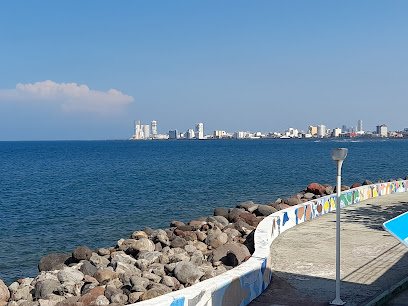
Zócalo de Veracruz
Experience the vibrant heart of Veracruz at the historic Zócalo, where culture, history, and local life come together in a beautiful square.
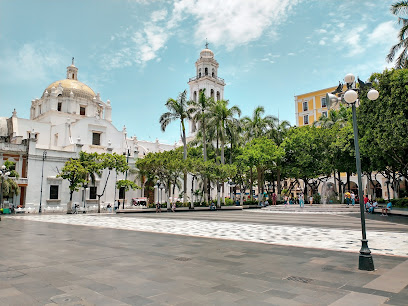
Malecón Veracruz Puerto
Discover the vibrant Malecón Veracruz Puerto, a stunning waterfront promenade perfect for cultural exploration, relaxation, and enjoying local cuisine.
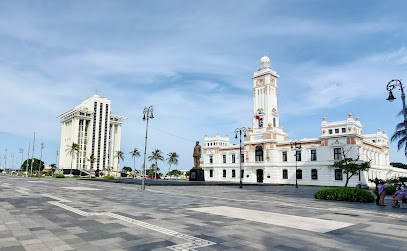
San Juan de Ulúa
Explore the captivating history and stunning views at San Juan de Ulúa, a must-see historical landmark in Veracruz, Mexico.
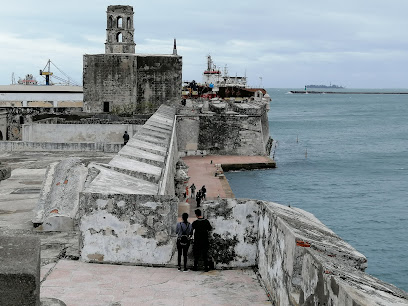
Cascada De Texolo
Discover the enchanting Cascada De Texolo in Xico, Veracruz: a stunning waterfall surrounded by lush nature and breathtaking views.
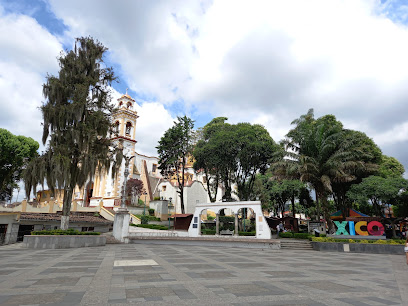
Faro Venustiano Carranza
Discover the historic Faro Venustiano Carranza in Heroica Veracruz, a stunning lighthouse offering breathtaking views and a glimpse into maritime history.
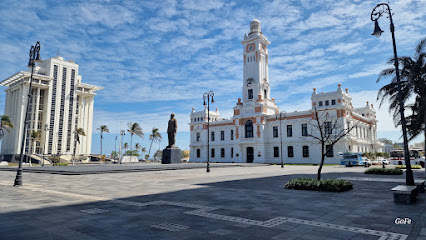
Distrito Boca
Discover the vibrant spirit of Distrito Boca in Veracruz, a lively tourist attraction with stunning views, delicious food, and rich cultural experiences.
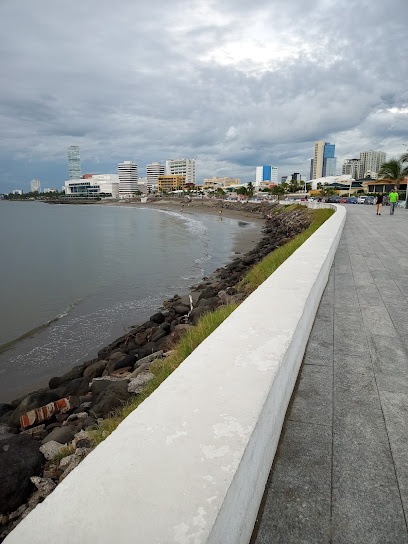
Museo de Cera
Explore the fascinating Museo de Cera in Veracruz, where lifelike wax figures of historical and cultural icons await to captivate your imagination.
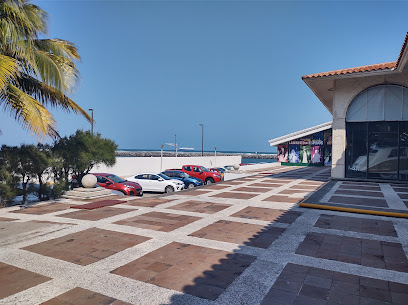
Malecón de Boca del Río
Discover the Malecón de Boca del Río, a vibrant waterfront promenade filled with stunning views, local cuisine, and cultural experiences in Veracruz.
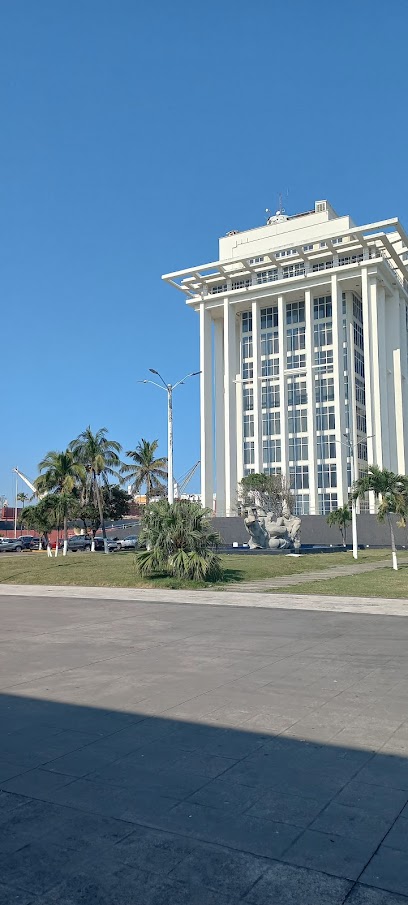
La Isla De Enmedio Embarcadero
Experience the beauty of La Isla De Enmedio Embarcadero, a serene tourist attraction in Veracruz offering breathtaking hikes and a unique farmstay experience.
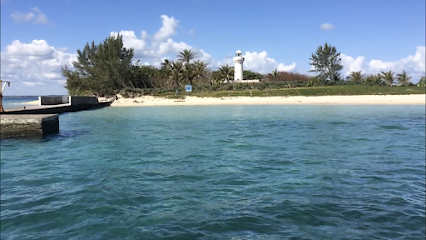
Quiahuiztlan
Discover Quiahuiztlan, a captivating archaeological site in Veracruz, revealing the ancient Totonac civilization's rich heritage amidst stunning landscapes.
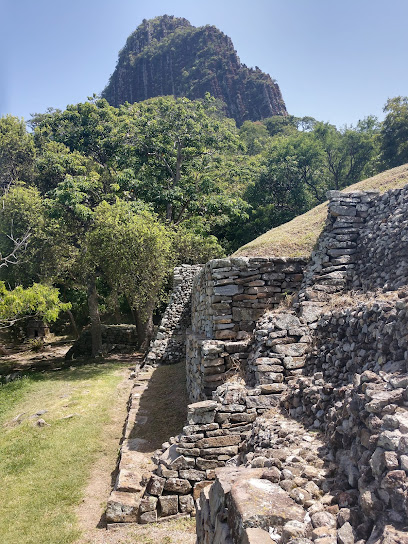
Historic Center of Veracruz
Discover the Historic Center of Veracruz, a vibrant cultural hub showcasing colonial architecture, rich history, and delicious local cuisine.
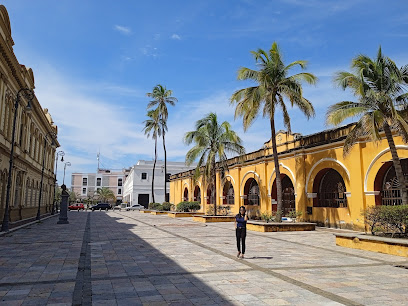
Museo Baluarte de Santiago
Explore the rich history and stunning architecture of Museo Baluarte de Santiago, a must-visit museum in Veracruz's vibrant cultural scene.

Playa Muñecos
Discover the beauty of Playa Muñecos, a stunning beach in Heroica Veracruz, where relaxation meets vibrant local culture and thrilling water activities.
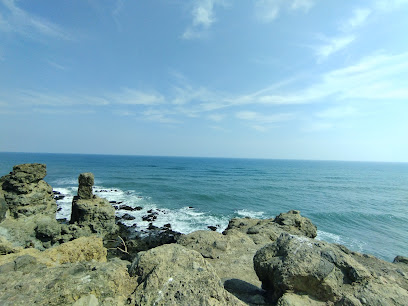
Conjunto Escultórico del Centenario de la Construcción del Puerto de Veracruz
Discover the rich maritime heritage of Veracruz at the Conjunto Escultórico del Centenario, a monumental tribute to the city’s vibrant history and culture.
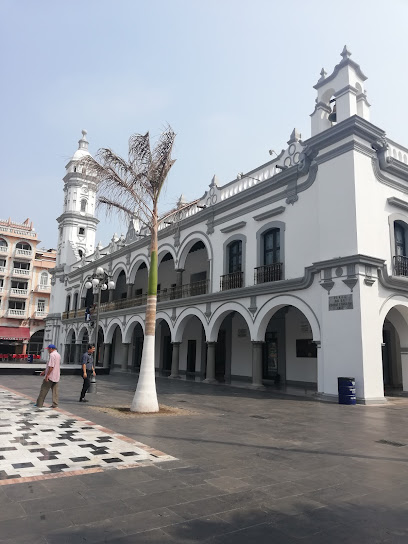
Unmissable attractions to see
Acuario de Veracruz
Discover the enchanting marine life and captivating exhibits at Acuario de Veracruz, a premier aquarium that educates and inspires visitors of all ages.
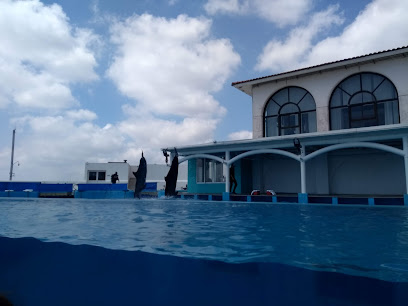
San Juan de Ulúa
Discover the rich history and stunning views at San Juan de Ulúa, a monumental fortress in Veracruz, Mexico, blending culture and breathtaking coastal scenery.
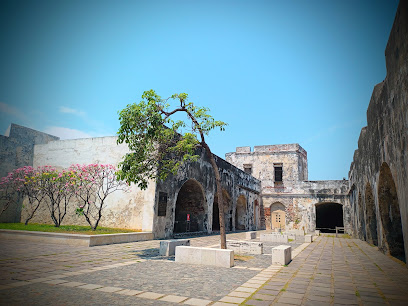
Cascada De Texolo
Discover the breathtaking beauty of Cascada De Texolo, a serene waterfall in Xico, Veracruz, perfect for nature lovers and adventure seekers.
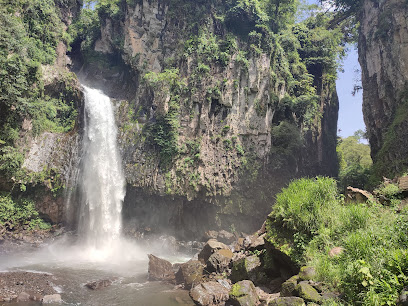
Museo de Antropología de Xalapa
Explore the Museo de Antropología de Xalapa, where ancient cultures come to life through stunning displays of pre-Hispanic artifacts.
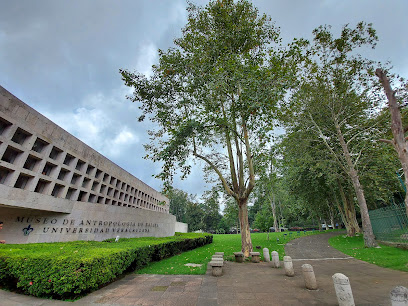
Callejón del diamante
Explore Callejón del Diamante, a historical landmark in Xalapa, where vibrant culture meets delicious local cuisine and stunning architecture.
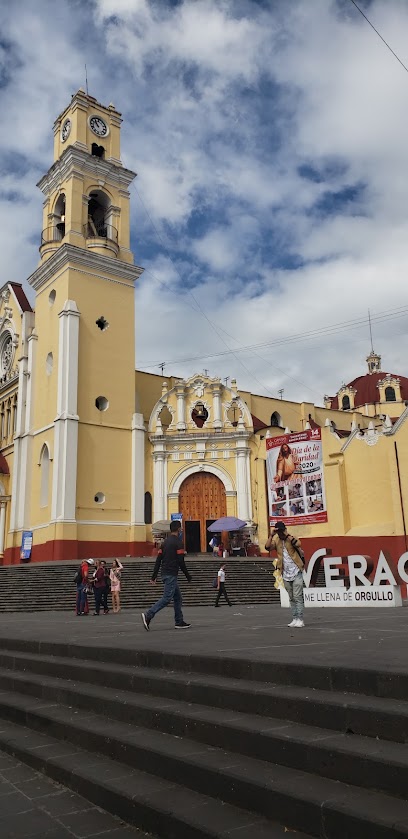
Natura Park
Experience the natural beauty and tranquility of Natura Park in Xalapa, a perfect destination for families and nature lovers alike.
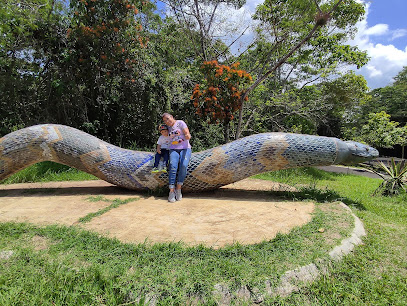
Museo de Cera
Explore the lifelike wax figures of Museo de Cera in Veracruz, where history meets artistry in a captivating museum experience.
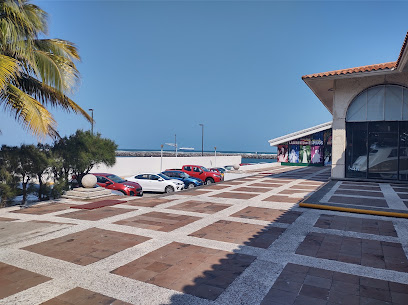
Cascada De La Monja
Discover the breathtaking beauty of Cascada De La Monja in Xico, Veracruz, a stunning waterfall surrounded by lush nature, perfect for a tranquil escape.
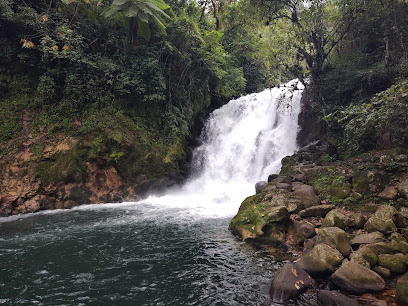
Cave Orquidea
Explore the breathtaking beauty of Cave Orquidea, a natural wonder in Xalapa-Enríquez, Veracruz, featuring stunning caves and lush greenery.
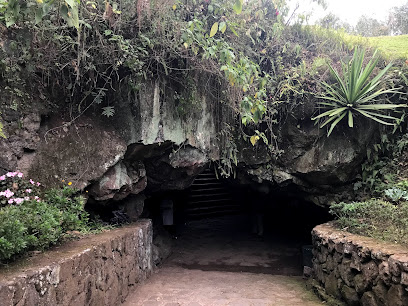
Estatal Cerro de Las Culebras Park
Explore the breathtaking landscapes of Estatal Cerro de Las Culebras Park in Coatepec, Veracruz, a perfect retreat for nature lovers and adventure seekers.
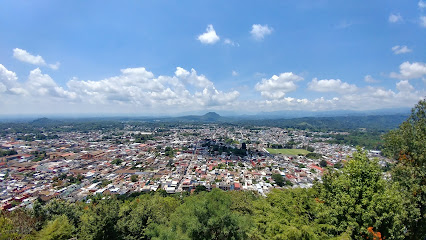
Monumento a la Madre
Explore the Monumento a la Madre in Xalapa, a stunning tribute to motherhood amidst beautiful gardens and vibrant community life.
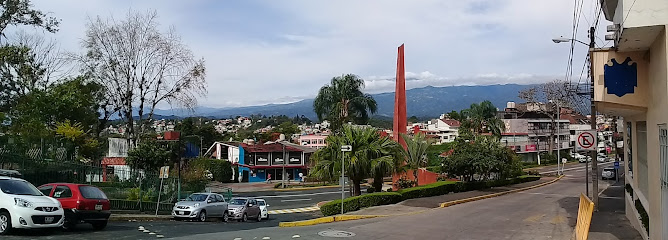
Museo del Danzante Xiqueño
Experience the rich cultural heritage of Xico at the Museo del Danzante Xiqueño, where traditional dance and local art come alive.
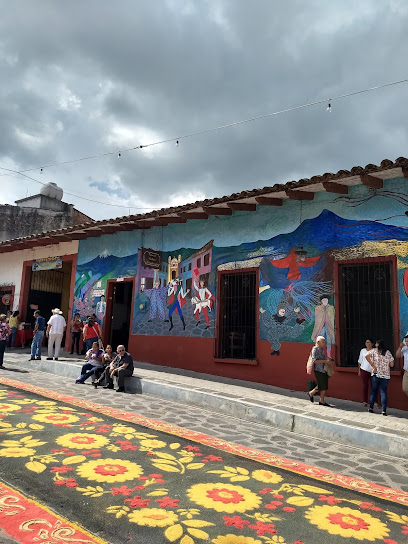
Cascada Bola de Oro
Explore the enchanting Cascada Bola de Oro, a stunning waterfall in Veracruz, Mexico, perfect for nature lovers and adventure seekers alike.
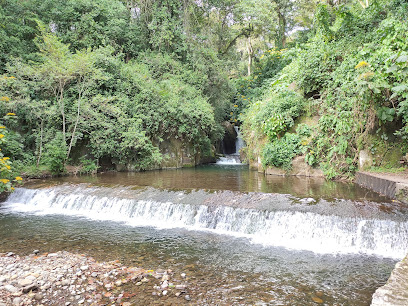
Excursiones
Explore Excursiones in San Marcos de León, a stunning tourist attraction offering adventure, nature, and cultural experiences in the heart of Veracruz.
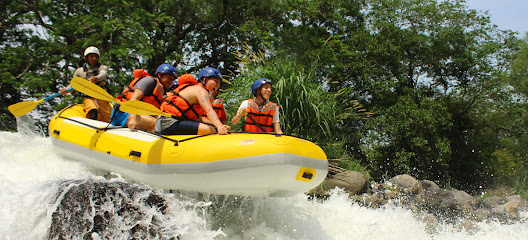
Pacho viejo
Explore Pacho Viejo, a hidden gem in Veracruz offering stunning landscapes, rich culture, and vibrant local traditions for an unforgettable travel experience.
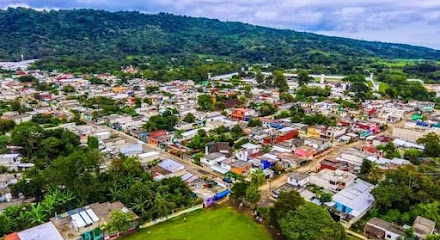
Essential places to dine
Restaurante Finca Andrade
Experience authentic Mexican cuisine at Restaurante Finca Andrade in Coatepec—perfect for breakfast lovers and coffee enthusiasts alike.
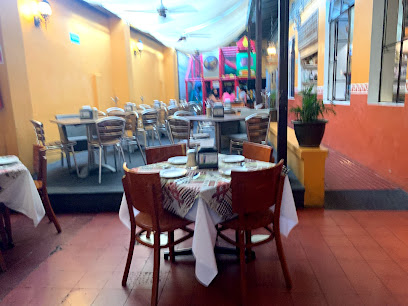
Postodoro
Discover authentic Italian cuisine at Postodoro in Coatepec—home to delicious pizzas and inviting atmosphere perfect for all diners.
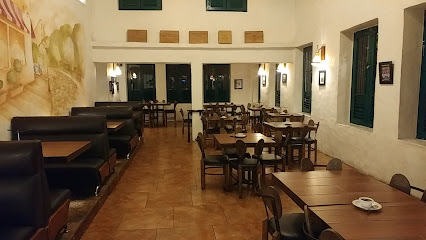
Las Hayas
Discover authentic Mexican flavors at Las Hayas in Xalapa – where every dish tells a story!
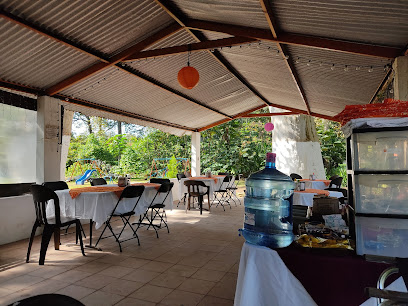
El Canto de la Sirena
Discover coastal culinary delights at El Canto de la Sirena in Coatepec – where fresh seafood meets vibrant local culture.
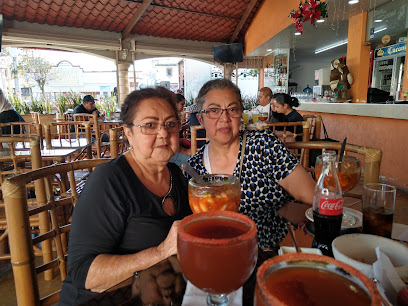
El Chalet
Discover authentic Mexican breakfasts at El Chalet in Xico—where tradition meets flavor in a charming atmosphere.
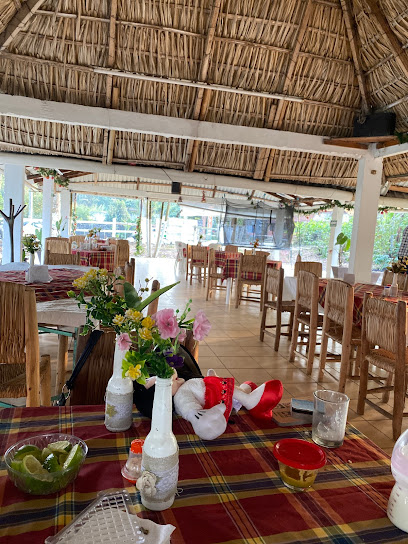
R Bonilla campestre
Experience the essence of Mexican cuisine at R Bonilla Campestre in Coatepec—where tradition meets taste in a scenic setting.
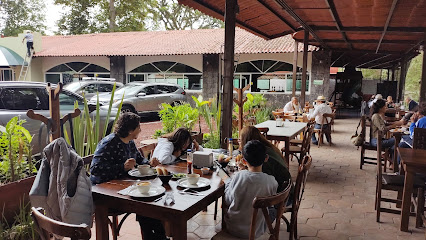
MARIANNA
Experience authentic Mediterranean flavors at Marianna in Coatepec - where every meal tells a story of tradition and taste.
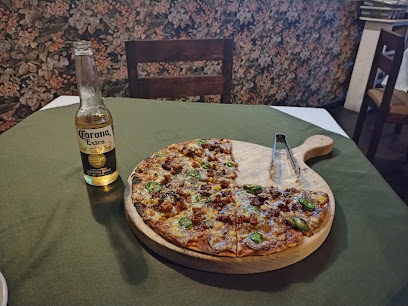
Nirankar
Experience exquisite flavors at Nirankar in Centro, Veracruz – where traditional meets contemporary dining.
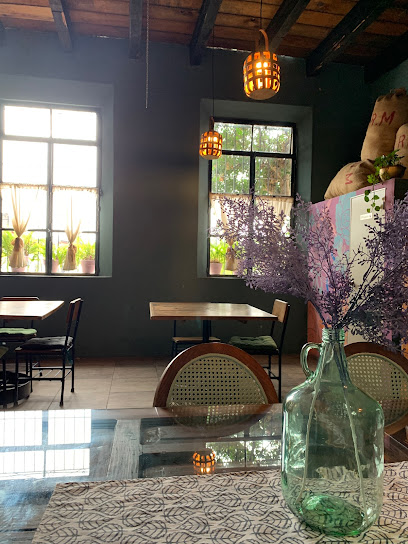
Cocteleria El Crucero
Experience authentic Mexican cocktails and local cuisine at Cocteleria El Crucero in beautiful Coatepec.
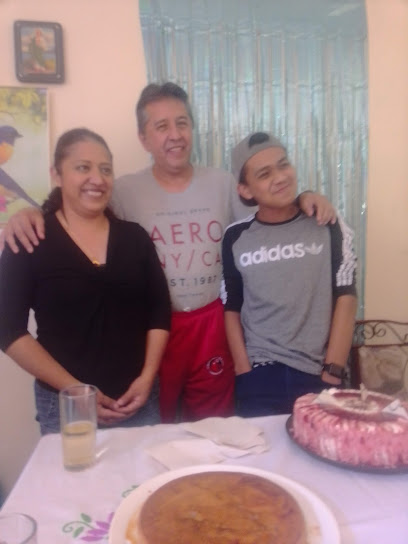
Restaurante La Berenjena
Experience the vibrant flavors of authentic Mexican cuisine at Restaurante La Berenjena in Veracruz - A true culinary delight!
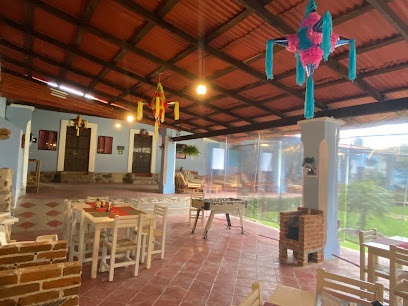
Markets, malls and hidden boutiques
Las Américas Mall
Discover the vibrant shopping, dining, and entertainment options at Las Américas Mall, a must-visit destination in Veracruz for every traveler.
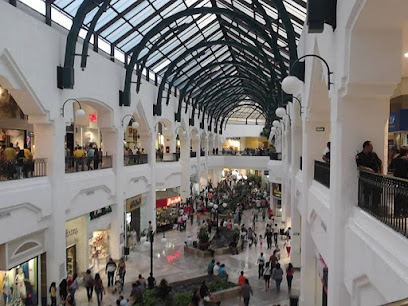
Andamar Lifestyle Center
Andamar Lifestyle Center: Your Ultimate Shopping Destination in Veracruz, Offering Diverse Stores, Dining Options, and a Unique Atmosphere.
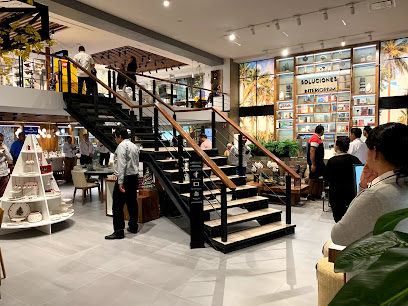
El Dorado Centro Comercial
Explore El Dorado Centro Comercial in Boca del Río, a vibrant shopping mall featuring diverse stores, delicious dining, and exciting entertainment options.
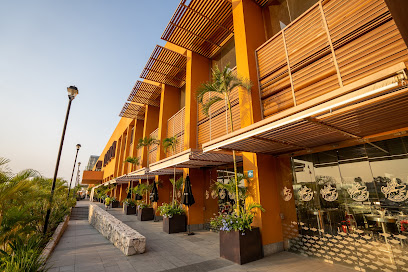
Plaza Bravo
Explore Plaza Bravo in Veracruz: a vibrant shopping mall offering a unique blend of local culture, dining, and entertainment for every visitor.
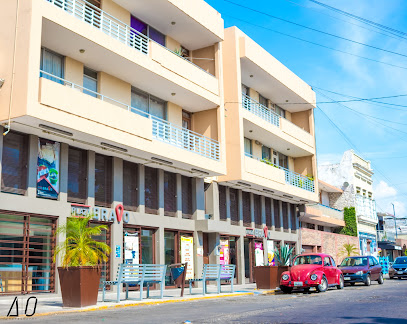
Urban Store El Dorado
Discover the latest fashion trends at Urban Store El Dorado, a vibrant clothing store in Boca del Río offering stylish apparel and accessories.
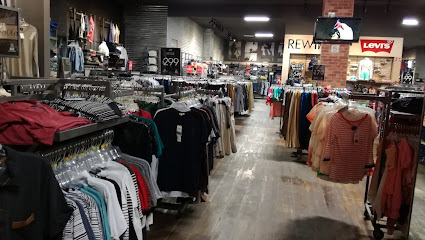
LOLA TIENDA
Explore LOLA TIENDA, Xalapa's charming gift shop, offering handcrafted treasures and unique souvenirs reflecting Mexico's rich culture.
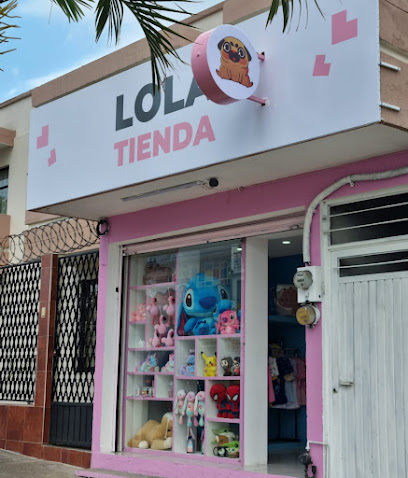
Gift Boxes
Explore Gift Boxes in Xalapa for unique souvenirs and local crafts that embody the spirit of Mexico.
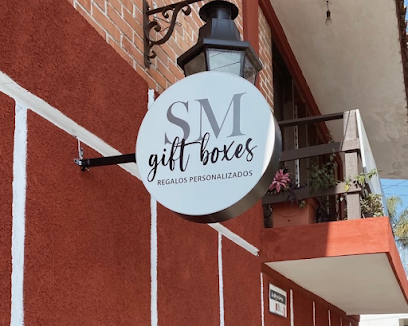
Artesanias Coatepec
Explore authentic Mexican handicrafts and savor rich local coffee at Artesanias Coatepec in the heart of Coatepec.
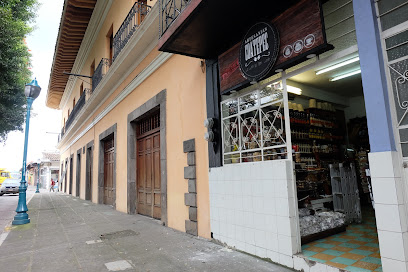
Mon Boutique
Discover unique fashion treasures at Mon Boutique in Coatepec, where local culture meets modern style.
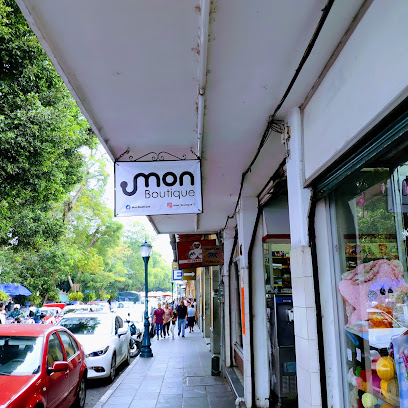
Mini Super Diana
Explore the vibrant local flavors and essentials at Mini Super Diana, a must-visit supermarket in Coatepec, Veracruz.
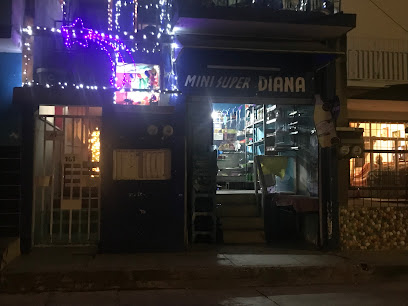
Plaza playa dorada
Explore the vibrant Plaza Playa Dorada in Heroica Veracruz, where local culture meets shopping and dining in a delightful atmosphere.
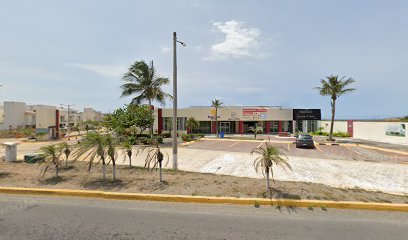
Auguri
Explore Auguri Gift Shop in Coatepec for unique fashion accessories and toys, showcasing local craftsmanship in a delightful shopping experience.

Detalles Coatepec
Explore the vibrant culture of Veracruz at Detalles Coatepec, a gift shop offering authentic local crafts and unique souvenirs.

ldss
Discover the magic of play at LDSS Toy Store in Coatepec, where every corner is filled with joy and creativity for children of all ages.
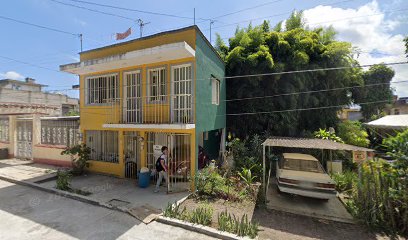
Essential bars & hidden hideouts
Dawson's
Experience the vibrant flavors and lively atmosphere of Dawson's, the premier grill bar in Veracruz, where great food meets live music.
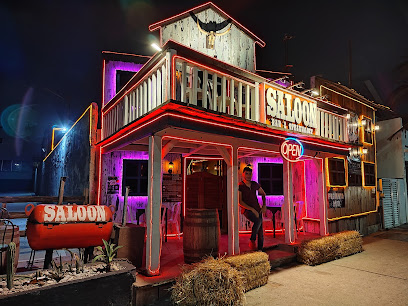
La Uni Bar
Experience the lively atmosphere of La Uni Bar in Xalapa, where affordable drinks and vibrant nightlife create unforgettable evenings.
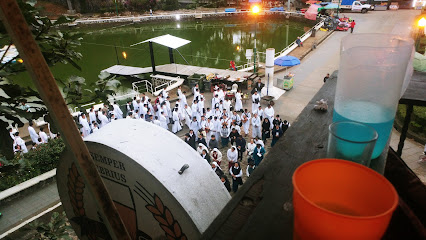
Chikaban
Experience the vibrant flavors of Coatepec at Chikaban, a lively bar and restaurant offering a delightful fusion of traditional and modern cuisine.
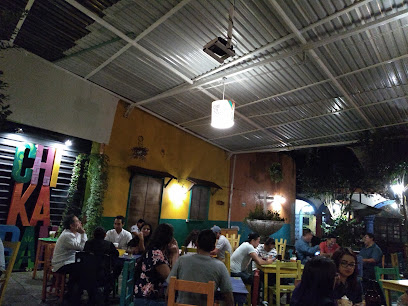
Bar El 20
Discover local flavors and vibrant nightlife at Bar El 20, Xalapa's favorite bar and restaurant for an unforgettable experience.
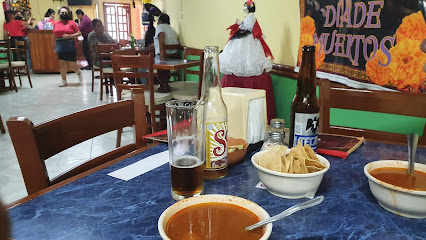
Vértice Bar
Experience the vibrant nightlife of Xalapa at Vértice Bar, a lively spot for drinks, live music, and unforgettable moments.
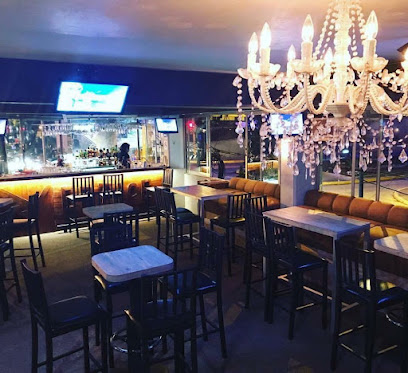
Chelandia
Experience the vibrant nightlife at Chelandia, a top bar in Coatepec known for its lively atmosphere and diverse drink selection.
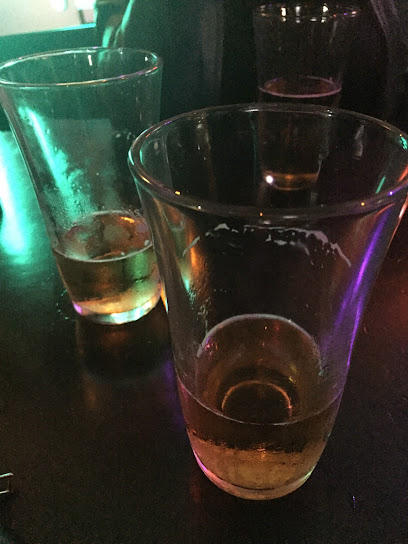
el piano cafe bar
Experience the vibrant nightlife of Coatepec at El Piano Cafe Bar, where music meets an inviting atmosphere and delightful drinks.
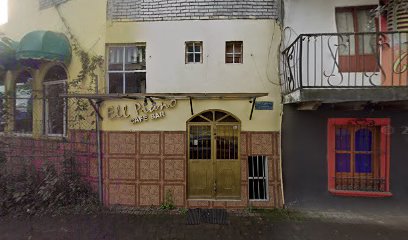
Cocteleria El Crucero
Experience the vibrant cocktail culture at Cocteleria El Crucero in Coatepec, where local flavors and a lively atmosphere await.
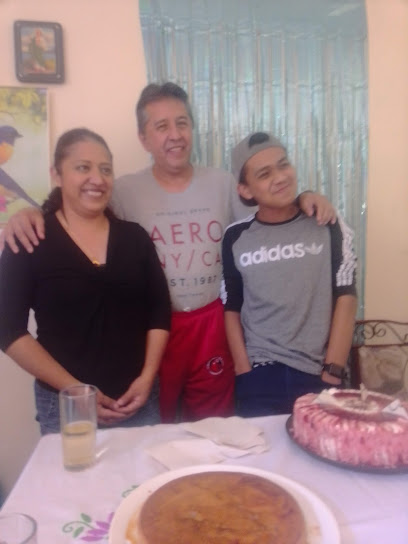
La Cerve Coatepec
Experience the lively atmosphere and local craft beers at La Cerve Coatepec, a must-visit bar in the heart of Veracruz.
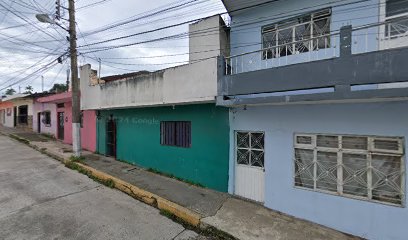
Futcheladas
Experience the vibrant flavors and lively atmosphere at Futcheladas, the go-to bar in Coatepec for tourists seeking local charm and creative cocktails.
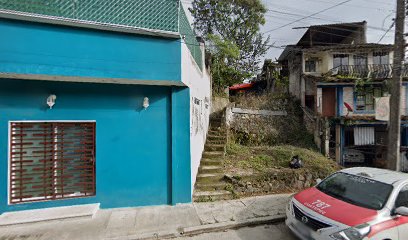
Local Phrases
-
- HelloHola
[oh-lah] - GoodbyeAdiós
[ah-dee-ohs] - YesSí
[see] - NoNo
[noh] - Please/You're welcomePor favor/De nada
[por fah-vor/deh nah-dah] - Thank youGracias
[grah-syahs] - Excuse me/SorryPerdón/Lo siento
[pehr-dohn/loh syen-toh] - How are you?¿Cómo estás?
[koh-moh ehs-tahs] - Fine. And you?Bien. ¿Y tú?
[byen. ee too] - Do you speak English?¿Hablas inglés?
[ah-blahs een-glehs] - I don't understandNo entiendo
[noh ehn-tee-ehn-doh]
- HelloHola
-
- I'd like to see the menu, pleaseMe gustaría ver el menú, por favor
[meh goos-tah-ree-ah behr ehl meh-noo, por fah-vor] - I don't eat meatNo como carne
[noh koh-moh kahr-neh] - Cheers!¡Salud!
[sah-lood] - I would like to pay, pleaseMe gustaría pagar, por favor
[meh goos-tah-ree-ah pah-gahr, por fah-vor]
- I'd like to see the menu, pleaseMe gustaría ver el menú, por favor
-
- Help!¡Ayuda!
[ah-yoo-dah] - Go away!¡Vete!
[veh-teh] - Call the Police!¡Llama a la policía!
[yah-mah ah lah poh-lee-see-ah] - Call a doctor!¡Llama a un doctor!
[yah-mah ah oon dohk-tohr] - I'm lostEstoy perdido
[ehs-toy pehr-dee-doh] - I'm illEstoy enfermo
[ehs-toy ehn-fehr-moh]
- Help!¡Ayuda!
-
- I'd like to buy...Me gustaría comprar...
[meh goos-tah-ree-ah kohm-prahr] - I'm just lookingSólo estoy mirando
[soh-loh ehs-toy mee-rahn-doh] - How much is it?¿Cuánto cuesta?
[kwan-toh kwehs-tah] - That's too expensiveEsto es demasiado caro
[ehs-toh ehs deh-mah-syah-doh kah-roh] - Can you lower the price?¿Puedes bajar el precio?
[pweh-dehs bah-hahr ehl preh-syoh]
- I'd like to buy...Me gustaría comprar...
-
- What time is it?¿Qué hora es?
[keh oh-rah ehs] - It's one o'clockEs la una
[ehs lah oo-nah] - Half past (10)Las diez y media
[lahs dyehs ee meh-dyah] - MorningMañana
[mah-nyah-nah] - AfternoonTarde
[tahr-deh] - EveningNoche
[noh-cheh] - YesterdayAyer
[ah-yehr] - TodayHoy
[oy] - TomorrowMañana
[mah-nyah-nah] - 1Uno
[oo-noh] - 2Dos
[dohs] - 3Tres
[trehs] - 4Cuatro
[kwah-troh] - 5Cinco
[seen-koh] - 6Seis
[says] - 7Siete
[syeh-teh] - 8Ocho
[oh-choh] - 9Nueve
[nweh-veh] - 10Diez
[dyehs]
- What time is it?¿Qué hora es?
-
- Where's a/the...?¿Dónde está el/la...?
[dohn-deh ehs-tah ehl/lah] - What's the address?¿Cuál es la dirección?
[kwal ehs lah dee-rehk-syohn] - Can you show me (on the map)?¿Puedes mostrarme (en el mapa)?
[pweh-dehs mohs-trar-meh (ehn ehl mah-pah)] - When's the next (bus)?¿Cuándo llega el próximo (autobús)?
[kwan-doh yeh-gah ehl prohk-see-moh (ow-toh-boos)] - A ticket (to ....)Un boleto (a ....)
[oon boh-leh-toh (ah)]
- Where's a/the...?¿Dónde está el/la...?
History of Zona Dorada
-
Zona Dorada, part of Veracruz, holds a significant place in the colonial history of Mexico. Established during the Spanish conquest, Veracruz was the first port city in the country, serving as a vital conduit for trade and the exchange of goods. The Zona Dorada area developed in the mid-20th century as a popular tourist destination, reflecting the region's maritime roots and its evolution into a hub for commerce and leisure.
-
The 1960s marked a pivotal moment for Zona Dorada, as it began to be recognized for its potential as a beach resort. The Mexican government invested in infrastructure and promoted tourism, leading to the construction of hotels, restaurants, and recreational facilities along the coastline. This development attracted both national and international visitors, transforming the neighborhood into a vibrant tourist hotspot.
-
Veracruz, including Zona Dorada, is known for its rich cultural tapestry, influenced by indigenous traditions, Spanish colonial history, and African heritage. This blend is evident in the local music, dance, and gastronomy. The lively son jarocho music, traditional dances like the jarabe, and dishes such as seafood-based Veracruzana style cooking exemplify the region's cultural diversity and vibrancy.
-
In recent years, Zona Dorada has faced challenges related to environmental sustainability and the impacts of mass tourism. Efforts have been initiated to promote responsible tourism practices, preserve the local ecology, and maintain the cultural heritage of the area. These initiatives aim to ensure that the neighborhood remains a thriving destination without compromising its natural and cultural resources.
-
Today, Zona Dorada stands as a symbol of Veracruz's resilience and adaptability. The area continues to evolve, featuring modern amenities alongside historical landmarks. Festivals celebrating the region's rich history and cultural heritage, such as the Carnaval de Veracruz, attract thousands of visitors annually, further solidifying Zona Dorada's status as a key player in the tourism landscape of Mexico.
Zona Dorada Essentials
-
Zona Dorada is easily accessible from various parts of Veracruz. If you're coming from the city center, you can take a local bus or taxi, which will take about 15-20 minutes depending on traffic. For those arriving from the Veracruz International Airport, a taxi is the most convenient option, taking approximately 30 minutes. Shuttle services may also be available through hotels.
-
Zona Dorada is pedestrian-friendly, making it easy to explore on foot. Taxis and ride-sharing services like Uber are widely available for longer distances or late-night travel. Local buses can also take you to nearby areas, but be mindful of the schedules. Bicycles can be rented from local shops for a more adventurous way to explore the beachfront.
-
Zona Dorada is generally considered safe for tourists, though it's wise to remain vigilant. Avoid walking alone at night in less populated areas. Areas such as the outskirts of the city may experience higher crime rates, so stick to well-lit, busy streets. It's also advisable to keep valuables secured and be cautious of pickpockets in crowded places.
-
In case of an emergency, dial 911 for police, fire, or medical assistance. Familiarize yourself with the location of the nearest hospital or clinic; the Hospital de Especialidades is a reliable option. Travel insurance that covers medical emergencies is recommended. Pharmacies are available for minor health issues, and many have English-speaking staff.
-
Fashion: Do wear light, breathable clothing suitable for the tropical climate. Don't wear overly revealing clothing in public spaces. Religion: Do respect local customs; visiting churches may require modest attire. Public Transport: Do give up your seat for elderly passengers. Don’t engage in loud conversations on buses. Greetings: Do greet locals with a friendly 'Hola' and a smile. Eating & Drinking: Do try local seafood dishes and drink plenty of water. Don't drink tap water; opt for bottled water instead.
-
To experience Zona Dorada like a local, visit the nearby markets for fresh produce and local delicacies. Engage with vendors; they often enjoy sharing stories about their products. Attend local festivals if possible, as they provide rich cultural insights. Try dining at local eateries rather than tourist spots for authentic flavors. Lastly, don’t miss the sunset at Playa de los Muertos for a picturesque end to your day.
Trending Landmarks in Zona Dorada
-
Acuario de Veracruz
-
Zócalo de Veracruz
-
Malecón Veracruz Puerto
-
San Juan de Ulúa
-
Cascada De Texolo
-
Faro Venustiano Carranza
-
Distrito Boca
-
Museo de Cera
-
Malecón de Boca del Río
-
La Isla De Enmedio Embarcadero
-
Quiahuiztlan
-
Historic Center of Veracruz
-
Museo Baluarte de Santiago
-
Playa Muñecos
-
Conjunto Escultórico del Centenario de la Construcción del Puerto de Veracruz
Nearby Cities to Zona Dorada
-
Things To Do in Puebla
-
Things To Do in Mexico City
-
Things To Do in Oaxaca
-
Things To Do in Taxco
-
Things To Do in Queretaro
-
Things To Do in Puerto Escondido
-
Things To Do in Acapulco
-
Things To Do in San Miguel de Allende
-
Things To Do in Guanajuato
-
Things To Do in Chiapas
-
Things To Do in Campeche
-
Things To Do in Guadalajara
-
Things To Do in Matamoros
-
Things To Do in Brownsville
-
Things To Do in South Padre Island








